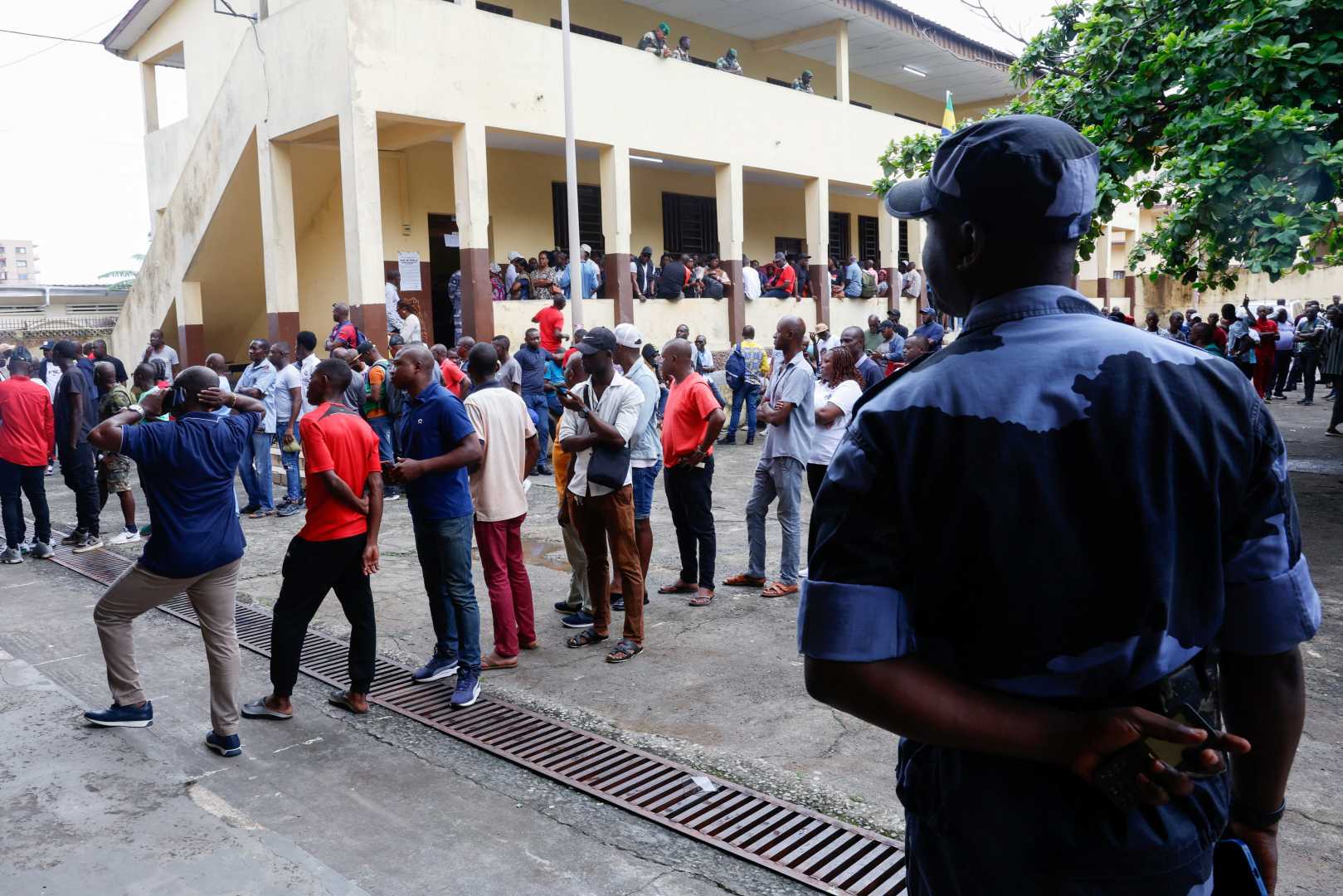Politics
Gabon Holds Pivotal Presidential Election Amidst Power Struggles

LIBREVILLE, Gabon — Voters in Gabon cast their ballots on Saturday in a highly anticipated presidential election as Brice Oligui Nguema, the military coup leader, seeks to solidify his grip on power nearly two years after overthrowing President Ali Bongo. The election, which many analysts predict will favor Nguema, marks a critical turning point for the oil-rich Central African nation.
The voting began at 8 a.m. local time (0700 GMT) across polling stations, and closed at 6 p.m. (1700 GMT), with results expected by Sunday. The victor will secure a seven-year term, which can be renewed once. Nguema, 50, portrayed himself as a transformational leader, promising to dismantle the legacy of corruption tied to the previous regime.
Nguema cast his vote in Libreville, describing the election process as transparent. He noted the long lines at polling stations as evidence of renewed public faith in the electoral system, stating, “Gabonese have regained confidence in the election.” His campaign emphasizes economic diversification away from oil dependency, aiming to enhance agriculture, industry, and tourism.
However, skepticism surrounds Nguema’s claims of transformation, as he previously served as an aide-de-camp for Ali Bongo’s father, Omar Bongo. Voter Libaski Moussavou, 34, expressed doubts, accusing Nguema of retaining old regime officials in his circle, remarking, “He sold us a dream.”
Nguema’s main contender, Alain Claude Bilie By Nze, a former prime minister under Bongo, has voiced concerns over the legitimacy of the electoral process. Voting in his hometown of Makokou, Nze stated that unused voter cards could potentially be misused for ballot stuffing. He highlighted the military’s participation in politics as a threat to democracy, appealing for its withdrawal from governance.
Political analysts suggest Nguema’s support is largely built on public approval of the coup that ended Bongo’s long reign, as well as his visibility during the campaign. Florence Bernault, a historian at Sciences Po, remarked on Nze’s struggles to distance himself from the Bongo administration, asserting, “He doesn’t seem to be very well placed to criticize.”
Economically, Gabon experienced growth of 2.9% in 2024, an improvement from 2.4% in 2023, spurred by infrastructure initiatives and commodity production as noted by the World Bank. However, voter concerns linger over essential services, such as electricity and clean water, as many citizens have endured persistent power outages. “I don’t know a Gabonese person who would say they don’t want water and electricity,” said Herve Regis Ossouami, a 40-year-old electrician.
The political atmosphere remains unstable, with Gabon’s recent history of electoral fraud and public unrest following Bongo’s controversial re-election in 2016, which incited violent protests. As the world watches, the outcome of this election may set the stage for Gabon’s political future, determining whether it returns to the status quo or embarks on a new path toward genuine democracy.
As Gabonese voters navigate this crucial election, they hold out hope for improved governance and structural reforms that prioritize their fundamental needs. Pépecy Ogouliguendé, a civil society activist, voiced aspirations for a brighter future, stating, “We, the citizens, aspire to improved living conditions, particularly in education, health, and infrastructure.”












